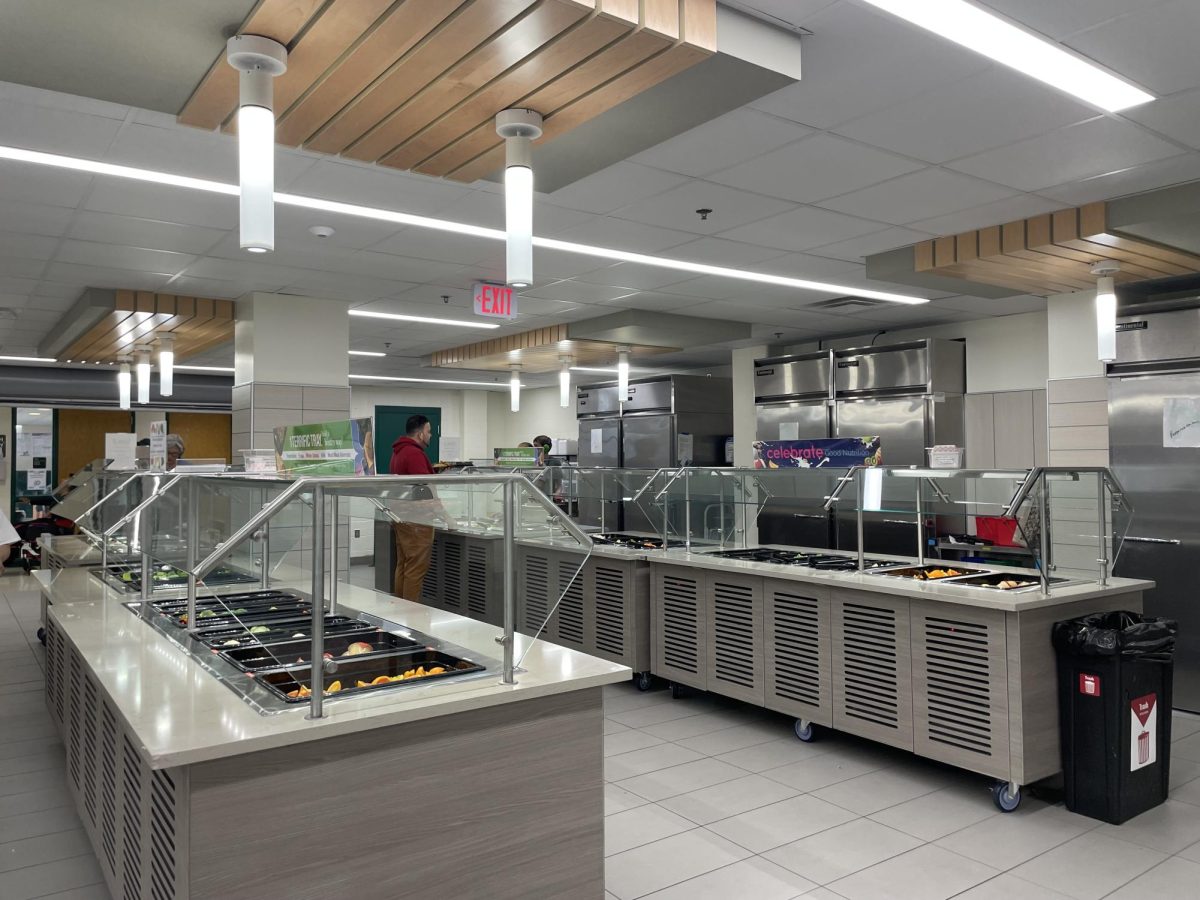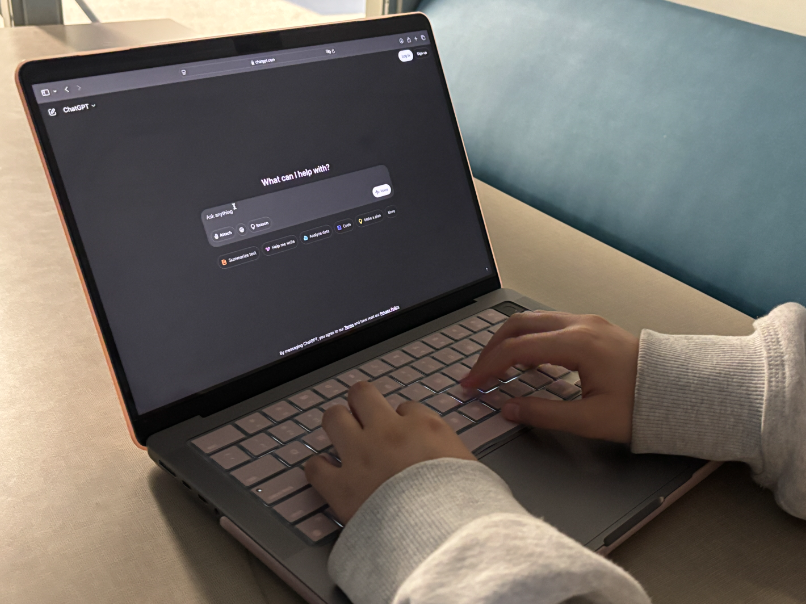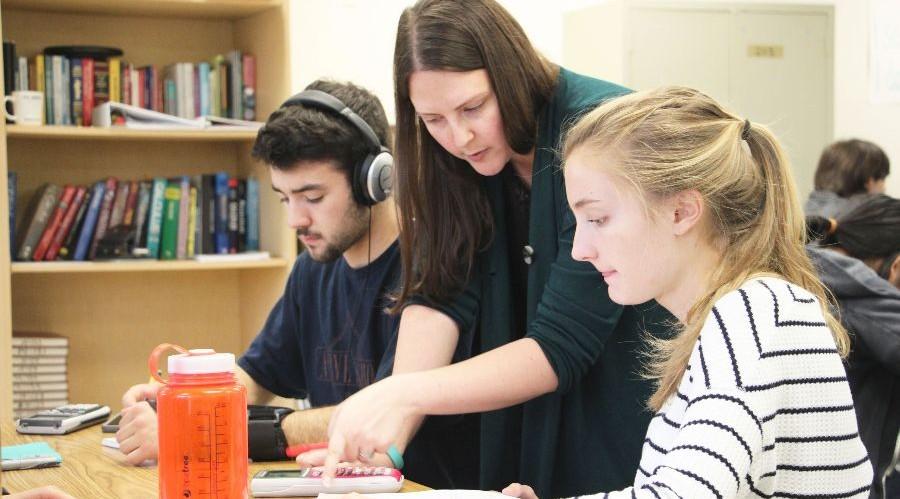Reflecting on the ReFLECT hour
Math teacher Leah Higginbotham works with students during ReFLECT.
April 30, 2016
Though an hour may not seem like much, the ReFLECT period’s positive impact has already been felt throughout the school. From seniors who simply want more sleep to freshmen tackling assignments for their first AP class, all students have benefited from the addition of a free hour.
ReFLECT provides focused time for teachers to be available to students during the school day. Currently, many students have to come in before or after school if they have questions on class material. However, with close to 80 percent of students involved in a school-sponsored activity, such limited scheduling can be difficult. By adding an hour for students to ask questions and make up work during the school day, ReFLECT helps students find a healthy balance between schoolwork and other activities.
Even students who don’t need to retake assignments or clarify questions on class material can benefit from ReFLECT. A study published in Education World reported that the introduction of mandatory study halls led to a higher number of honor students, better average GPA scores and improved teacher morale at Mary High School. From discussing assignments with fellow students to simply taking a breath during their packed days, students can use the ReFLECT hour to meet their individual needs.
Some have argued that providing additional time for students may create more stress by encouraging high schoolers to take on even more commitments. This is a legitimate concern, considering that students are packing their schedules with an increasing number of AP and honors classes. However, it’s important to understand that ReFLECT is not an invitation for students to take on harder schedules. Students are still responsible for assessing other commitments to create an appropriate schedule. While some students may misunderstand the purpose of ReFLECT and use it as an opportunity to overbook their schedules, the benefits of ReFLECT to the entire student body are too great to be ignored.
ReFLECT is an instrumental tool in addressing the mental health and stress concerns of many high schoolers. According to a recent study by Stanford University, the constant stress of schoolwork has negatively affected the social well-being and family time of many teenagers. An overabundance of homework can also lead to sleep deprivation, which can result in decreased learning abilities and depression. Through allowing students to finish homework during the school day, ReFLECT promotes healthy amounts of social interaction and sleep.
Though the ReFLECT hour has proved to be extremely beneficial, there is still room for improvement. For example, during the first trial run, there were reports of students dumping crayons all over the library’s floor and sprinting through the hallways. Additionally, some teachers were unaware of the proper procedures for sending students to their classrooms. To address these issues, the school could assign students to supervised classrooms or implement more structure to the hour.
Students and teachers have long voiced the need for a solution to the various challenges that students face daily. The administration’s response of creating a free hour to help students keep up with the fast-paced Mounds View curriculum is appropriate and effective. With proper planning and execution, ReFLECT has the potential to lead to huge student growth, both academically and mentally.














![[DEBATES] Prestigious colleges: value or hype?](https://www.mvviewer.org/wp-content/uploads/2024/12/buildings-1200x654.png)































![[OPINION] The dark origins of TikTok's looksmaxxing trend](https://www.mvviewer.org/wp-content/uploads/2024/02/Copy-of-Copy-of-Untitled-Design-1200x675.png)















